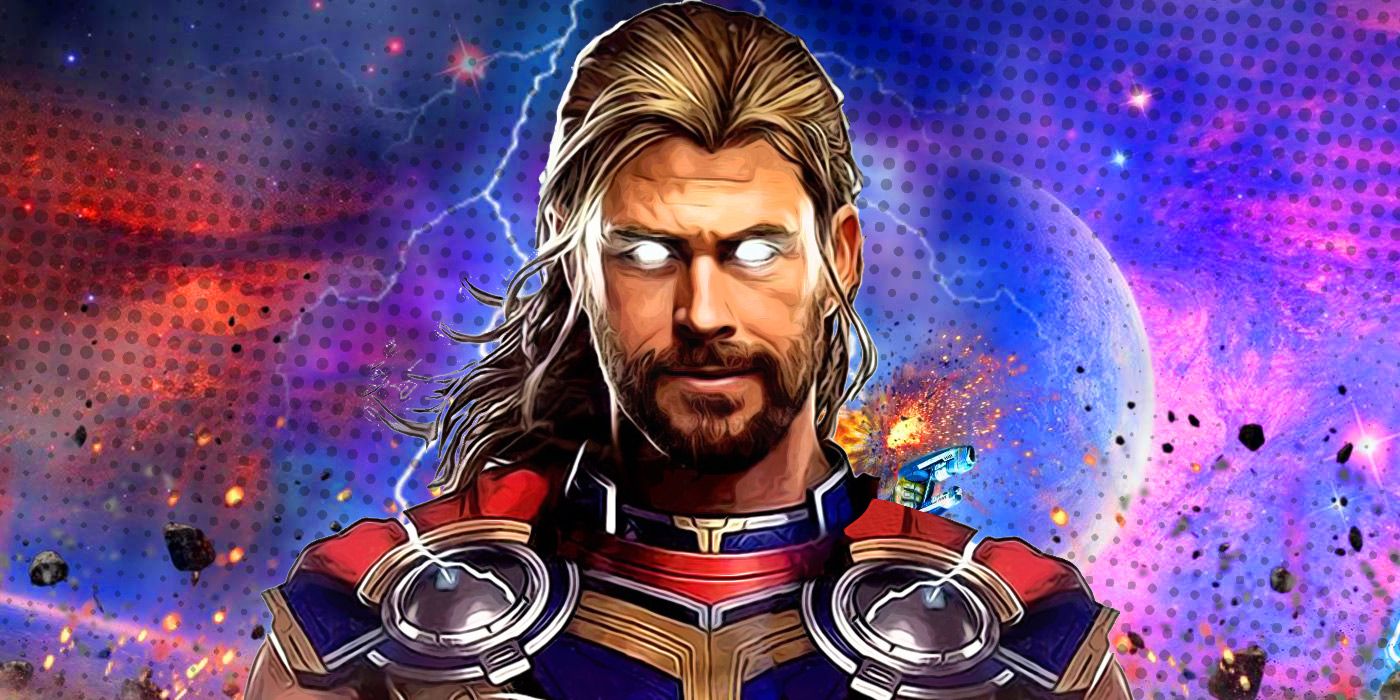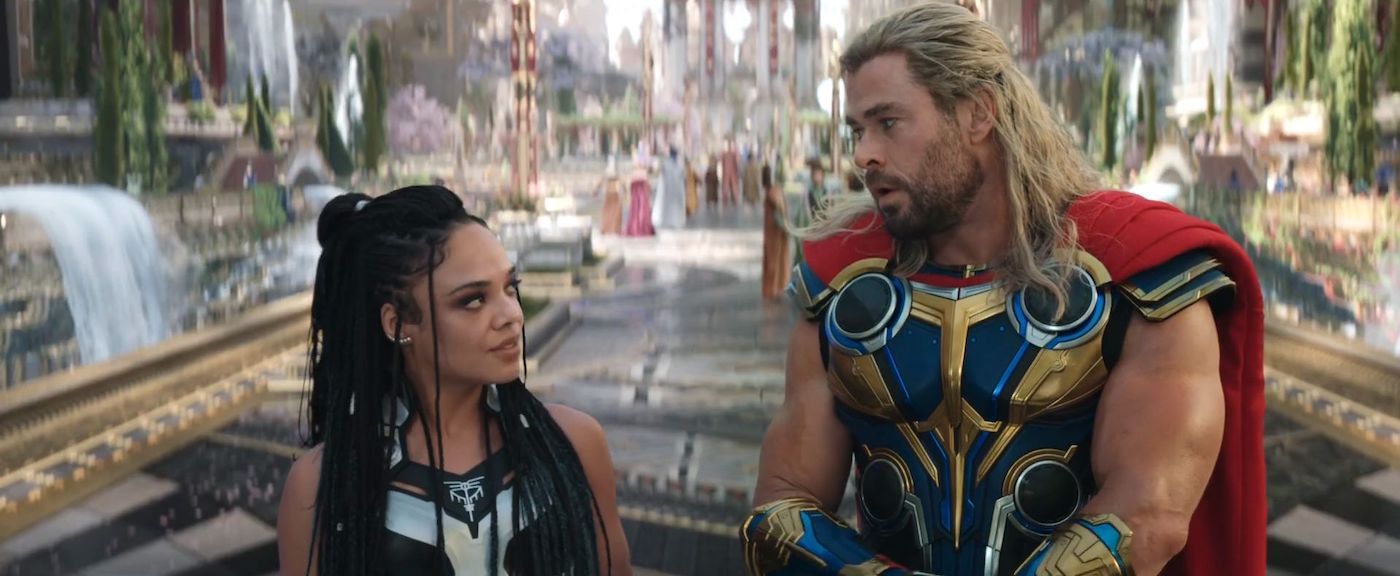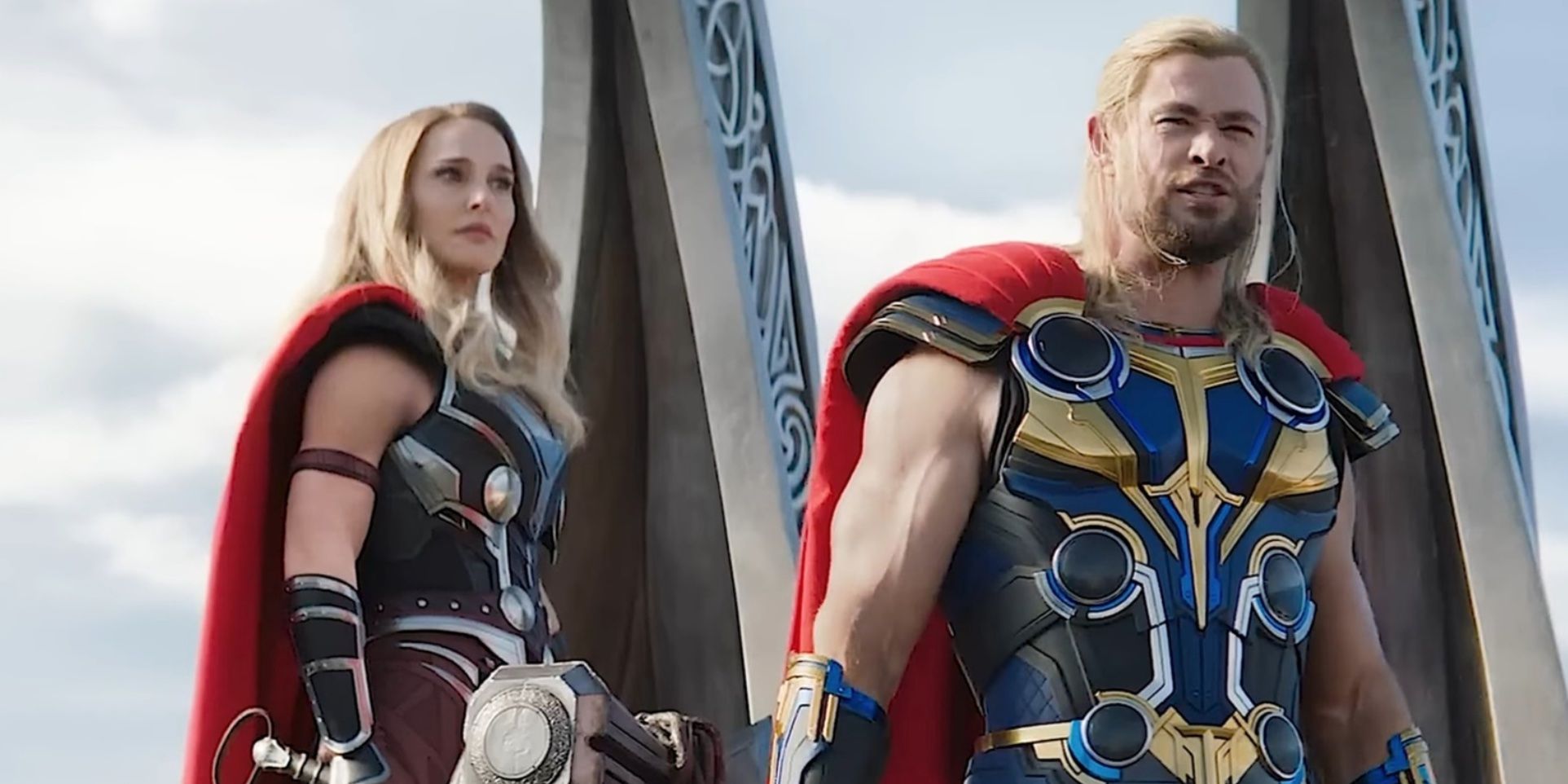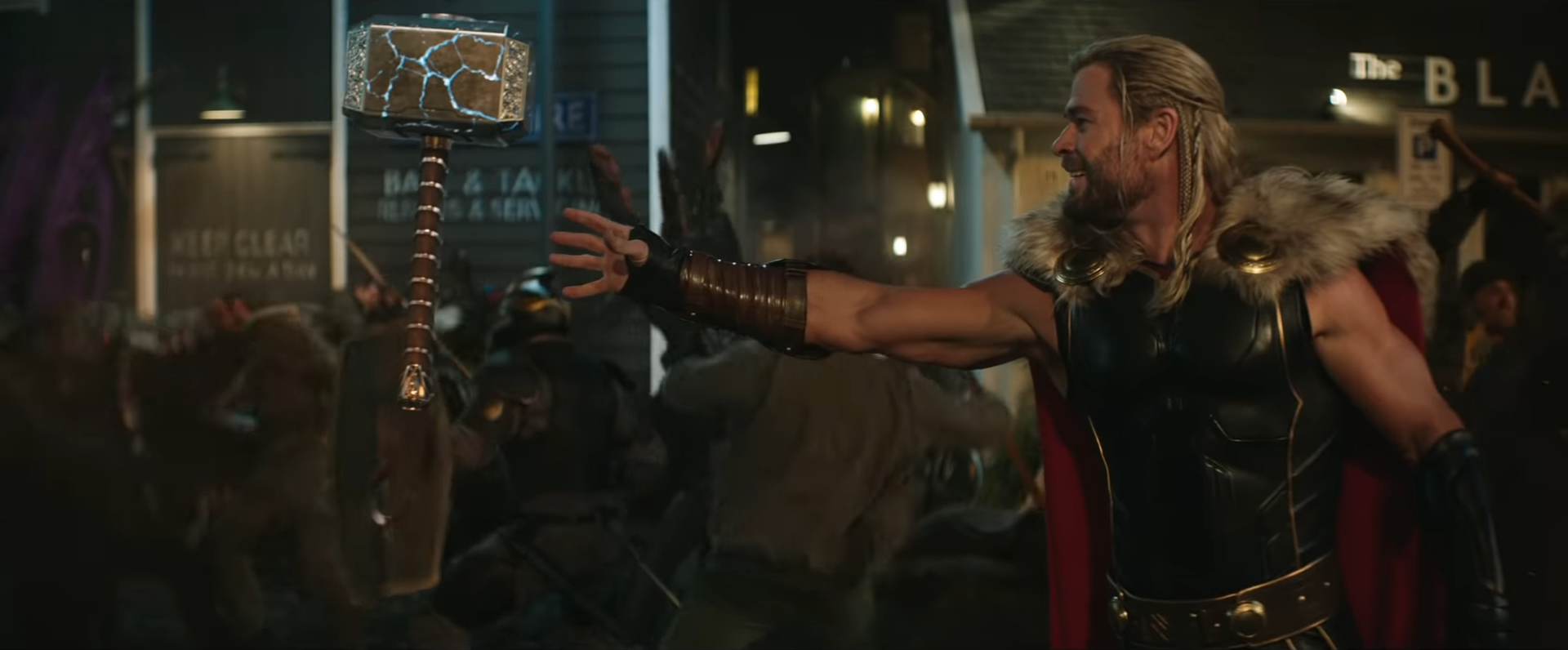Editor's Note: The following contains spoilers for Thor: Love and Thunder.
Only the third big-screen Avenger ever to be introduced all the way back in 2011, Chris Hemsworth’s journey as the thunder god Thor has spanned the practical totality of the Marvel Cinematic Universe and has now permeated every phase of the franchise. Thor’s presence in the MCU has been split between defending the nine realms as Asgard’s rightful heir and as one of Earth’s mightiest heroes as he learns humility and what it means to be worthy. With three standalone films and four team-up epics preceding it, Taika Waititi’s Thor: Love and Thunder delivered yet another “classic Thor adventure” worthy of the iconic Asgardian Avenger and proves that Thor’s crowd-pleasing charisma and the mythically cosmic appeal of his adventures never fails to engage fans with every installment.
But for as much as the fourth chapter shows that Thor and his exploits still have a withstanding likability and endless story potential for the future, I argue that Love and Thunder should be the final word in Hemsworth’s tenure as the space Viking for how it fulfills his most interpersonal needs for family.
Is Thor's Story Arc Complete?
Over the past 11 years, Thor has faced ancient evils, megalomaniacal titans and otherworldly terrors of every description on his travels, but what has persisted throughout each of his films is how much he values family and the tremendous grief he endured upon losing all of his loved ones. From even the first film Thor (2011), the Asgardian prince is surrounded by loved ones and is portrayed as an eager youth with an arrogant invincibility unafraid of death, taking the lives of those around him immortally for granted.
With each passing film, after losing his mother, father, countless friends, girlfriend, fellow Avengers, kingdom and his adopted brother, Thor’s character development has come to be defined by how he loved and lost practically everyone he has ever cared about and how he chooses to remedy it. Grief has shaped how Thor occupies his own stories and has coped with loss in his own ways through rage, depression and vengeance.
In Love and Thunder, Thor denies acknowledging his pain and closes himself off from love of any kind out of fear of further loss and heartbreak.
The ending of each of Thor’s stories take something he loves away from him and present him greater pain to add to his grief, but while Love and Thunder still ends with the loss of Jane Foster (Natalie Portman), it is the first time that tragedy gifts Thor with an opportunity for new love.
Thor the Single Dad
The climactic final battle ends with Gorr the God Butcher (Christian Bale) choosing to use Eternity to revive his late daughter and sacrifice himself, choosing love over vengeance in the same way Thor learns to. In the film’s final moments, it is revealed that Thor adopts Gorr’s daughter and raises her as a single dad. While depicted in a comedic light, juxtaposing the mighty Avenger as a domestic stay-at-home dad, this ending provides Thor with the most fitting and rewarding conclusion to his story of finding and keeping love.
Every battle Thor had fought up to this point was to save or avenge the people he has loved and lost, with him losing even more friends and family along the way. This time, his adventure concludes with an opportunity to have what he has been fighting for all this time: a love to call his own that he can be his best self in.
Every kind of love he had up to this point, whether as a brother, a boyfriend, a teammate, and friend, caused him great heartache as he was either unable to be what those relationships needed him to be, or they were unrequited. Love and Thunder posits that Thor would make a great dad and becoming one would grant Thor the purpose and love that he had looked for in his years of fighting for unconditional love.
Thor becoming a surrogate father to Gorr's resurrected daughter is a brilliant way to end his story, as this is the culmination of what Thor has fought to defend these past 11 years: love. This story gives him the greatest gift of love in becoming a parent to a newfound unlikely family. Thor was a god, a hero, a king and an Avenger, but becoming a dad in Love and Thunder is the most fitting way to conclude Thor's quest for a love worth living for and protecting.




